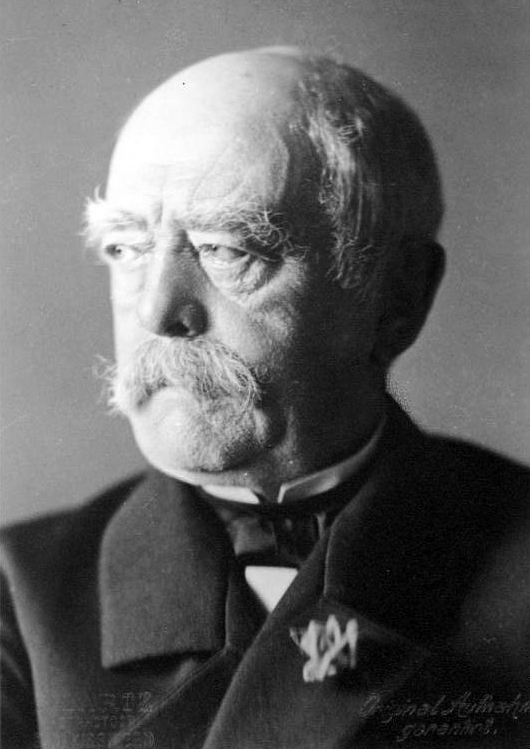German Empire
The German Empire is a large nation encompassing much of Central Europe bordering Italy, Comintern Republic, Yugoslavia, Poland, and Russia. It is considered one of the leading powers of the world.
Structure
The German Constitution is written such that the King of Prussia is also the German Emperor. However, many other states, including the Kingdom of Bavaria, have their own respective monarchs. Many of the states retained their own foreign policy, military, and postal systems. During times of war, the united German military would be transferred to Prussian command.
Culture
The culture of the German Empire is diverse, with many of the southern states being cultural distinct from their northern counterparts. In the eastern states, there is a high Polish population that strives to retain their own cultural identity. However, following the end of the Great War and the centralization of national identity, many of these minority groups were either suppressed or pressured to emigrate.
History
The German Empire was proclaimed in 1884, immediately preceding the Berlin Conference and the scramble for Africa. This was meant to consolidate Bavarian and Prussian interests in Africa, and to work as a counterbalance to the rising distrust towards Austria and Spain. Wilhelm I of Prussia was proclaimed German Kaiser in Berlin at the Royal Palace.
The great questions of the time will not be decided by speeches and majority decisions—that was the great mistake of 1848 and 1849—but by iron and blood.Otto von Bismarck
The German Empire was the work of Prussian President-Minister Otto von Bismarck. In 1864, he orchestrated a war with Denmark in order to take control of the territories of Schleswig and Holstein. In 1866, the dispute with Austria over these territories erupted in the Austro-Prussian War. Russia joined Austria, and so Prussia gained the support of Sweden. Prussia nearly reached St. Petersburg via the Baltic territories, while Sweden conquered Finland and established a blockade of the city. The Baltic States recieved their independence, with all but Estonia receiving German kings, and Estonia receiving Prince August, brother of King Charles XIV John of Sweden and Norway, as king.
In the early 19th century, Germany aligned itself with the neighboring nations of Holland and Russia. However, there remained much distrust among the allies, as Kaiser Wilhelm II was wary of Constantine II and Louis III's liberal policies towards domestic concerns. The three remained allies and formed an integral alliance in The Great War against Great Britain, Spain, Occitania, Austria, and Ukraine.
In 1920, with their victory, Germany obtained good relations with the new Austrian Emperor Leopold. Though there were desires to annex large portions of Austrian territory, the German High Command elected to support the new Hapsburg Confederation in the Hungarian Revolution of 1922. This was not done by any sense of benevolence, and was rather done to keep a balance in Europe following the rise of socialism in France, Holland, and Occitania.
Following the dissolution of the Hapsburg Confederation, Austrian Emperor Franz Karl accepted the lesser title of King of Austria, and negotiated Austria's entry into the greater German Empire. Germany also gained the territories of German Moravia and German Bohemia. After receiving great pressure from the Imperial staff, Liechtenstein also joined the German Empire in 1923. With the announcement of the Kingdom of Czechoslovakia, Germany renounced their claims on Bohemia and agreed to accept Prince Gabriel, the brother of Tsar Ivan VII, as king as a form of appeasement to Russia.
With he rise of the Comintern Republic, Paul von Hindenburg and Erich Ludendorff effectively became joint heads of a military dictatorship. In 1925, Kaiser Wilhelm II agreed to appoint Hindenburg as Chancellor of Germany over Ludendorff, though the latter did join the Reichstag. Hindenburg crushed communist uprisings and mutinies within the German military and society. He opposed Ludendorff's ideology of national unity under a single German identity, and instead left the various German kingdoms to the status quo under new federal power. Hindenburg and his staff did not return the military to their respective states, and instead the German army remained under a central authority.
German statesmen sought to bring a homogenized German identity, especially after the acquisition of Austria, completing the idea of Grossdeutchland. They pressured the Polish minority to emigrate to the newly formed Kingdom of Poland. They also suppressed individual identities in Saxony, Bavaria, and Wurttemburg, with the idea being instead allegiance to the central imperial authority. Many of the states and kingdoms within the German Empire opposed this, but were taught that it was this central identity that won the Great War. This identity was championed among the political circles by Ludendorff and his staff. Ludendorff eventually succeeded Hindenburg in 1932.
Russia led a political movement against this German radicalism, though others such as the newly reorganized Anglo-Irish Empire wished for a strong and friendly Germany to counterbalance the Comintern Republic. With the growing unrest in Galicia and the Ukrainian regions of Russia, Ludendorff was suspected of aiding rebels, leading many Russian politicians to seek investigation or war.
In 1935, kaiser Wilhelm agreed with Tsar Ivan VII to not aid the Ukrainians for the sake of stability of the Russian Empire. This did little to quell tensions, as many German ministers simply moved the equipment through Polish dealers, thus leading to the Russo-German War.
Though Germany was victorious, the tremendous loss of life led to many controversial economic and social changes. The Minister-President of Austria, Engelbert Dollfuss, was selected to be Chancellor of the German Empire during the later years of the war, the first Austrian to hold the position. This angered many of the Prussian elites, who attempted to retain the control over the German government. Wilhelm II agreed, and attempted to press Dollfuss to resign. However, the changes to the constitution allowed for Dollfuss to stay in power, originally meant to keep the military dictatorships to continue. Wilhelm II passed away in 1941, during the constitutional crisis, and the ascension of Wilhelm III was more cooperative.





